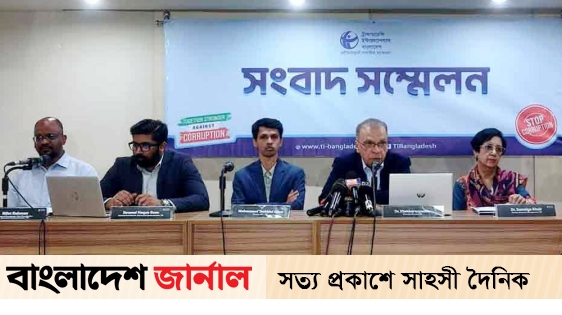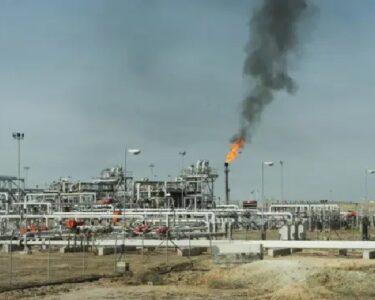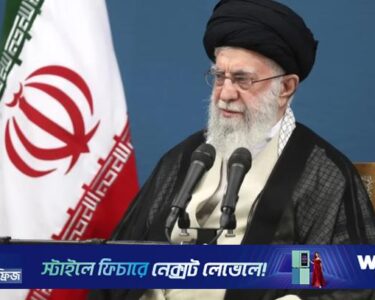By winning the upazila elections, the main goal of the candidates is to gain wealth and gain opportunities to increase wealth. As a result, the income of the candidates in the post has increased by almost five hundred and fifty percent in the last 10 years. Individual income has increased by almost 11 thousand percent. Transparency International Bangladesh (TIB) has analyzed and observed the data of the candidates' affidavits for the Sixth Upazila Parishad Election-2024 (2nd Phase).
In a press conference organized by the organization on Sunday, it was also said that there is a sick competition to become a public representative due to the convenient opportunity to develop financial resources along with being in power.
In continuation of the first phase of Jatiya Sangsad election and Upazila Parishad election, TIB has prepared dashboard analysis and affidavit of candidates contesting in the second phase. Analyzing the affidavits of the candidates, TIB has shown that, comparing the candidates who won the upazila parishad elections with the candidates who were not elected, the income and assets of the elected representatives have more than doubled. That is, the trend of rapid increase in income and wealth with power has become evident. If we compare the candidates who have been in office for the last 10 years, it can be seen that the income and movable assets of the candidates who have been in office have increased by 540.68 percent and 211.98 percent respectively. While the income of non-employees increased by 56.47 percent, wealth decreased by 45.44 percent. In five years, income increased by 140.61 percent, while those who did not hold office increased by 77.44 percent. Similarly, during this period the movable assets of incumbent candidates increased by 231.62 percent and those who did not hold office increased by 100.33 percent. In this case, not only the electors themselves, but the income and wealth of their wives and dependents have increased by leaps and bounds.
Executive Director of TIB at the press conference. Iftekharuzzaman said, “The rate of women among the candidates except reserved posts is less than two percent.” On the other hand, as at the national level, the predominance of traders is almost unanimous. Similarly, there has been a decentralization of one-party rule, as has the rise of dynasties at the local level.'
People's representatives who have been in power for a long time, clearly mentioned the trend of increasing their income and wealth. Zaman also said that the increase in income and wealth of those who were already elected representatives was many times higher than those who were not representatives. From this it is clear why there is a sick competition to be a representative of the people. The main interest of being elected in the local government system has in many cases shifted away from the welfare of the people and settled on increasing one's own wealth. Besides, the institutions charged with verifying that the affidavits show that abnormal wealth growth is consistent with their legitimate income and that there has been abuse of power in acquiring or growing wealth, show no interest in doing so. On the other hand, the information given in the affidavit is not examined to what extent it is adequate and reliable.
The organization said that the dominance of business candidates in the local government elections is also ongoing. The number of business candidates increased by 8 percentage points compared to the fourth election to 57 percent. 70.51 percent of the chairman candidates contesting in the second phase are businessmen. About 68.73 percent of vice chairman candidates, 29.26 percent of female vice chairman candidates showed business as a profession. 51.63 percent of the women vice chairman candidates mentioned themselves as housewives or showed housework as a profession. However, 14.55 percent of the candidates showing housewife/housekeeper as occupation have income from business.
Overall, 42 percent of the candidates have shown income below three and a half lakh rupees, that is, they have no taxable income. Only 10 percent of the candidates have shown an income of more than 16 and a half lakh rupees. A significant income disparity was observed between the chairman and other candidates. About 21 percent of the chairman candidates have an income below three and a half lakh rupees, while it is 53 percent for other candidates. Similarly, the income of about 23.62 percent of the chairman candidates is above six and a half lakh taka. It is only 3.25 percent for other candidates. That is, relatively rich people are competing for the post of chairman. Apart from this, a total of 116 of the Phase II candidates have assets of Rs 1 crore or more. The number of millionaires has tripled compared to the previous election.
According to the analysis of the affidavits of the second phase candidates, a candidate's income increased by a maximum of 10 thousand 900 percent, immovable assets increased by a maximum of 11 thousand 666 percent in five years. The maximum income growth rate of a candidate in 10 years is 5 thousand 336 percent. In five years, the local government people's representatives have left behind the parliamentarians in the increase of movable assets. In the parliamentary elections, the wealth growth rate of a member of parliament was the highest 3,65 percent, while the wealth of a chairman candidate increased by more than 11,000 percent. Apart from that, 4 candidates have land more than the legal limit or 100 bighas or 33 acres.
Ikramul Haque Ivan, co-coordinator of Outreach and Communication Department of the organization, presented the analysis and observation of TIB in the press conference.
Bangladesh



